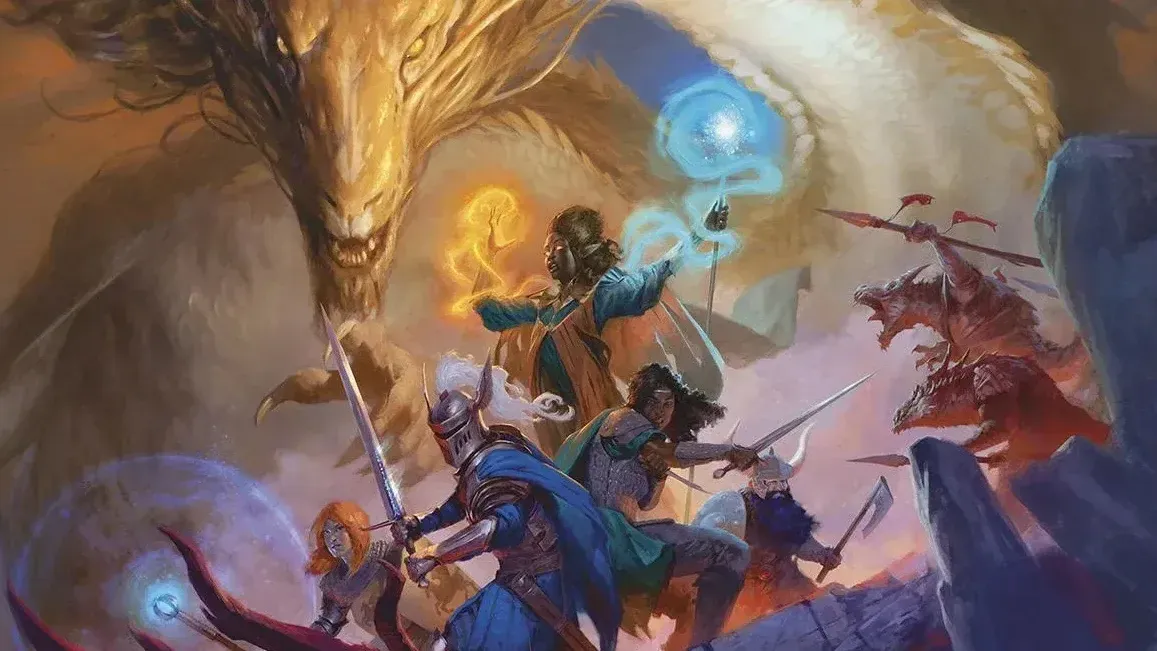Edition Wars have made a battleground of D&D Beyond
In an effort to support backwards compatibility, the proposed changes to D&D Beyond (and the subsequent retraction) divided the user base along lines a decade apart.

In 2022, D&D Beyond had over 10 million subscribers. While that number has fluctuated (and was impacted by the social media-led boycott in early 2023 after the “learning opportunity” presented by Open Gaming License debacle) it’s probably safe to estimate that the number of subscribers currently lies around well north of 2022’s 10 million estimate. D&D Beyond, which was launched in 2017, has always been focused on Fifth Edition. When Wizards of the Coast purchased D&D Beyond from Fandom (which had purchased it from Curse/Twitch) some fans were excited about the possibility of importing 4E or even 3.5E content onto the site. That, of course, never happened. D&D Beyond was built for one game—D&D Fifth Edition (2014).
On Friday, August 23, D&D Beyond announced its plans to switch over the default character sheet creator settings from 2014 Fifth Edition to the updated 2024 Fifth Edition and set the D&D-focused internet alight. According to the changelog, not only was D&D Beyond going to be automatically implementing the free 2024 core rules to the structure of the site and the extremely popular character creator but it planned to remove parts of the 2014 content at an unprecedented scale. Specifically Magic Items and Spells are going to be entirely replaced by the 2024 counterparts, with no way to prevent the change. The changelog states, “if you wish to use the old version of a magic item or spell that has been replaced by its 2024 counterpart, you will need to create a homebrew copy of it and enable homebrew content on your character sheet.”
For users, the Friday changelog outlined an update that would basically force them to use the 2024 ruleset for any information attached to their D&D Beyond character sheet unless they were willing to workaround the updates via user-input homebrew items and spells. It doesn’t matter that there are only small differences, or that you could still access these entries in other places within the site, the fact was that D&D Beyond was taking a useful tool and turning it into a chore.
Within three days—at midnight EST on August 26, to be precise—there was a new blog on the D&D Beyond site and an update to the changelog. They would not be moving forward with the update as previously outlined. The public outcry to the proposed changes got through to them, and this time, far faster than what happened a year and a half ago when the proposed changes to the OGL.
Last week we released a Changelog detailing how players would experience the 2024 Core Rulebooks on D&D Beyond. We heard your feedback loud and clear and thank you for speaking up.
— D&D Beyond (@DnDBeyond) August 26, 2024
Read the full update here: https://t.co/o6wDEwjBs1 pic.twitter.com/IKNRsOcXIp
What’s happening now is exactly what Wizards of the Coast has been trying to avoid at all costs: edition wars. It’s not just about whether or not users are willing to homebrew items to preserve the 2014 wording, this user outcry is about what game they want to play… and right now, most people aren’t willing to make the switch to 2024 immediately. Edition wars are what severely hurt the Fourth Edition release and set D&D back (in a corporate sense) years. Edition wars are what helped strengthen Pathfinder’s foothold in the industry. It’s telling that the biggest threat to D&D’s market dominance is the fact that they keep tripping over the game design barriers they established.





